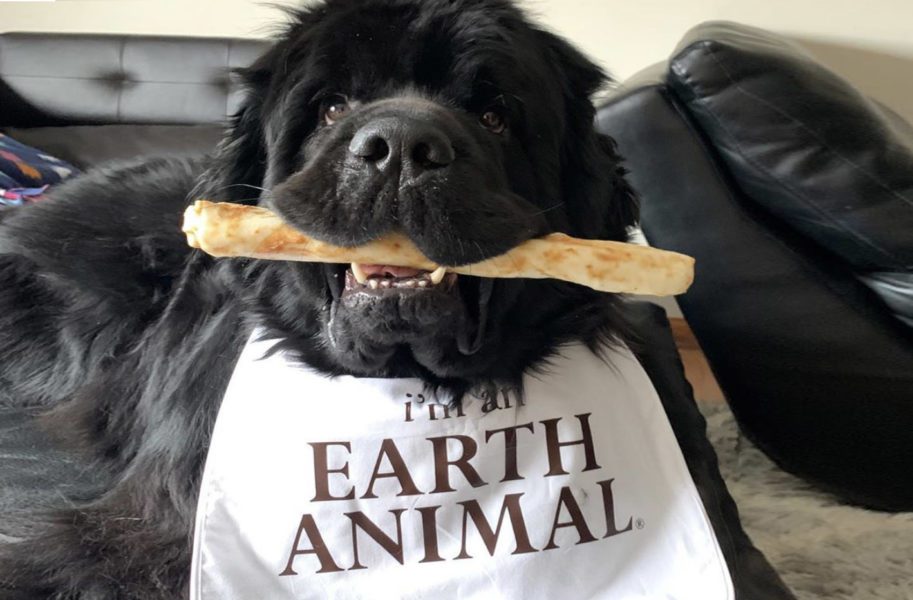B Corp Month is a time for companies in this community to come together and present to our stakeholders why using our businesses as a force for good matters. It is also a time to collaborate with each other and share inspirational stories that show you how We Go Beyond.
Today we are honored to share a chat we had with our friend and pet industry impact-leader, Spencer Williams, Founder and CEO of West Paw located in Bozeman, MT. Spencer founded West Paw in 1996 and became a Certified B Corporation in 2013. As the first Certified B Corp in the pet industry, Spencer has been inspiring and influencing us (and many others in the industry) for years which is why we felt sharing his story was the best way to kick off B Corp Month.
Stephie Volo, Earth Animal’s Chief Impact Officer: Tell us a bit about how you got started in the pet industry?
Spencer: I was always interested in animals, as I grew up on a working ranch in Montana. And sheep were my best friends – I didn’t have a lot of friends in the countryside, and from a young age I recognized the joy and connection I got from being around animals. We had lots of barn cats, dogs, all of it.
And I was also very interested in business and how it all worked. In fact, I started my first business with my friends in high school making juggling toys and we actually made money. After college and while working in Vermont, I knew I wanted to go back to Montana. As luck would have it an opportunity popped up to buy a small, local business that made sewn plush toys for dogs and cats.
Although I didn’t know anything about running a business, I knew that where I wanted to grow as a leader was in making work a very impactful place for people to spend their work days. I wanted to look at employees not as adversaries but as partners. And I also wanted to grow the business to have an impact as well. So, at age 23, I jumped in and started learning how to build a business.
Stephie: So you’ve always been a purpose-driven leader?
Spencer: That’s sort of a loaded word, Stephie. I guess I would say that I have always given a S#@&. People matter a lot to me, and I had learned through much of the work I had done during and after college about how to value people and how valuable people were to the organizations I was working for. I also learned how people weren’t feeling valued in some of the work.
I didn’t try to become people’s friend, but I did try to create the kind of environment where everyone felt safe and trusted. The main reason I wanted to start a business in Montana was to create jobs. In the 1990’s Montana didn’t have a lot of good jobs then and yet how could I be impactful as a business —it was really around creating opportunities for people.
By sparking those opportunities as a business, it was important to me to treat everyone with dignity and to do things better than the status quo. And so, I guess in that way it was purposeful to me. It felt like the right thing, and it made me feel like I was giving the best that I could give along the way.
Stephie: I love that story Spencer and I’m wondering if you have an example of doing something better than the standard quo?
Spencer: On the people side, we started our profit-sharing program in our 4th year of business. We wanted people to know that if the company succeeded, they also could benefit and they had a stake in that outcome.
And, on the environmental impact side, we knew we wanted our own factory, partly because creating jobs meant creating a factory! We also didn’t want to be shipping containers from far flung factories where working conditions and environmental issues are very hard to monitor. The impact from bringing products in from around the world just didn’t make sense to me.
So, we focused on building people and building a factory to make products ourselves and use sustainable materials with as little waste as possible.
I never thought of myself as a purpose-driven leader, not once. And I don’t know if I think I am today. It’s an important word or phrase, but I think for me it is about being values-driven. My values and how I run this company must be in sync and when there is dissonance, that doesn’t work for me. And I think that’s why I am probably not very employable… But, those values that were so important to me drove a purpose that also mattered and grew over time.
Stephie: Thank you, Spencer. With that said, do you think consumers today know what Certified B Corps are and what this movement is all about?
Spencer: Well, we have been a Certified B Corp for 10 years and 10 years ago, nobody knew what the heck B Corp Certification was. But to answer your question about today, “do consumers today know what Certified B Corps are and what their mission is?”, I would say yes, they definitely recognize the “B Corp” symbol. Particularly consumers that align with this broader movement already.
We are seeing more brands and companies of all shapes and sizes becoming B Corp Certified because they want to be a part of the movement. They want to reach consumers who align with their values in how they run their businesses.
That said, I don’t think that all these consumers necessarily know what the movement is about. But I think B Lab (our the B Corp governing non-profit), the B Corp community and the brands themselves, try to tell the story of what using business as a force for good is, what it means, and how it includes their workers, communities, customers, the environment, and our business governance responsibility.
There still needs to be more education about how B Corps are a part of a movement, that what we are trying to achieve is bigger than any one company. Things like what we are doing today – this conversation, collaborating with each other, and the B Corp Month campaign, can really contribute to informing people of that.
Stephie: Let’s talk about your journey – how and when did you hear about B Corp Certification?
Spencer: In 2010 or 2011, I read about B Corp, but I had the misconception that a company was required to change their legal structure and that made me nervous.
Years later I was at a dinner in Minneapolis and someone from B Lab was there talking about what they were trying to do. I thought great, yea, I’d love to learn more. That conversation was very impactful because it dispelled the concern I had that caused me to brush it off for a couple of years.
I learned that, no, it wasn’t about changing your legal structure. It was that legally you needed to commit to be a part of this interconnectedness. That was a big breakthrough and then it took a year after that because I wanted my core leadership team to be fully on board. I didn’t want it to be one of those “founders” things where I just said we are going to do it but nobody else sees the value in it. I wanted the whole team to understand why it would be important for us to do so we took some time to educate, get the team built, and then we started our first assessment.
Stephie: Let’s get into that, the assessment – as a manufacturer, can you please talk about the rigorous process to become a Certified B Corp?
Spencer: The B Corp assessment is a monstrous assessment because it assesses all different types of companies, of all different sizes, across all types of industries, around the world, and there is really nothing like it. It is such a visionary product because it has different levels of qualifications based on your size and type of company, in your industry, and the whole of your business. This allows the development of a valid score for each business.
I believe in the assessment, and I believe the team who built the assessment put a lot of professional experience and time into building it. As a part of the development of the assessment, they got testers to help vet the questions. West Paw has been a tester over the years to make sure the questions are truly relevant.
I remember hearing the 3 B Corp founders at one of the earliest Champion’s Retreat in Boulder in 2013 say that for this movement to really work, we needed an assessment that gets harder and harder each year – because what makes a great B Corp in 2013, is not the same as what makes one great 10 years later. They had this vision and understood what would be needed, and I have been and continue to be today, fully bought into it.
Stephie: I have always admired West Paw and other Certified B Corps because they use environmental and social issues, as well as their mission, as drivers for product innovation. Do you think pet parents should care about purchasing products that are created to help solve these issues?
Absolutely. I absolutely believe pet parents should care about what brands are doing with innovation. Innovation provides the best hope for the future. Innovation in how we work with our communities, innovation in how we develop products, innovation in how we deal with people – innovation is the fuel in how we help humanity overcome the challenges we have created. So, consumers should be very thoughtful about supporting brands that are trying to be innovative with materials or processes or people.
A good example for us is the work we have been putting into the ocean-bound plastics. When we conceived of this idea, it was met with some skepticism because we are a Montana company, far from the ocean, and some wanted a plastics issue that was closer to home. But our planet is connected by oceans, therefore everybody is connected that way.
And I am a big believer that businesses should try and find a solution as close to the source as possible. While the story is really sexy about harvesting plastics from the ocean and it’s really important to do, it is also really expensive and unpredictable. Where I saw our impact was in developing a source of plastic that is going to stop it from going into the ocean in the first place. And that is why we chose ocean-bound plastic. It’s a harder story to tell, but it is trying to get at the solution as early as we can.
Pet parents should care about companies using innovative materials as well – recyclable plastic, or less problematic plastics. They should care why a company would use organ meats in their pet treats for example – those organs are very high value, highly nutritious, and the planet has grown them, the animal has grown them, and those ranchers, those producers, are not getting paid for them. And they are a loss. So, could we imagine creating wonderful treats for dogs that are healthy, nutritious, and safe for dogs that honor all the effort that went into growing that protein and honor the rancher with rewarding them for their work. Looking at how we create products, along with peers, to try and drive positive change – pet parents should care about that, and they should support that kind of business.
The last thing is that I love to see consumers buying used products or repaired products. We are a consumer products company, and we don’t sell used products, but we do recycle and take back from our consumers and retailers worn dog toys and recycle them. I think we are the only company that has a take-back recycling program for our dog toys.
Stephie: To end this amazing conversation, Spencer, I’d love for you to share one thing pet parents should know about when it comes to Certified B Corps.
Spencer: (After a long pause) I think I can narrow this down to two things – let’s try anyway. First and foremost, a pet parent will be more confident in the product they are buying as a good product from a good company. This is where as consumers, pet parents should look towards the safety and well-being of their pet and how that company, in various ways, is helping to protect the future through social and environmental progress. That is where I think consumers should start because they are going to get a better product and support a better company.
I think the second thing a pet parent should know is that when they give their financial support (and vote with their dollars) to a Certified B Corp, they are actually enabling that B Corp to be part of a bigger movement. That movement is so much bigger than one brand. When consumers can recognize when they are buying from B Corp whose mission is to use business as a force for good, those B Corps all together have collective impact. They’re inspiring other businesses to do good work. They’re inspiring their competitors to join the movement. They’re inspiring governments to think about better ways to manage the impact that is happening. It’s just good on good!
So, better products, better service for the pet parent and supporting a good company makes sense. AND the broader mission of those B Corps being a part of a movement and giving them the financial support to do that is so worthwhile.
Stephie: Thank you, Spencer, for spending time with us and allowing us to acknowledge you and West Paw during B Corp Month. Any last words before I let you go?
Spencer: Sure – I guess when I talk about these things with you, my mind sort of goes to “what’s next?”
I think about when you share this blog with your community and when people read it and start thinking about it, they are thinking about how they can change their actions and behaviors, right?
What we need to figure out is how we can inspire the next generation of businesses to understand the benefit of becoming B Corp Certified – that all of us in this movement use our business as a force for good, and our end goal is to help each other thrive year after year.
That’s a powerful reason to join, or work for a B Corp, to start or become a B Corp – so that business can actually be better. B Corps take inspiration from other B Corps – there is a shared trust because we have all gone through this rigorous certification. We’ve got this shared mission because we are all part of the same movement.
If all of us lean on each other for sharing knowledge, we can accelerate the pace of innovation. We can increase the numbers of businesses that started with this mindset of doing good while being profitable and helping people grow. I think what’s next is that people who are attracted to B Corps or starting new businesses, should think about how successful they can be in accomplishing positive impact and creating successful companies by connecting with and learning from other B Corps.






